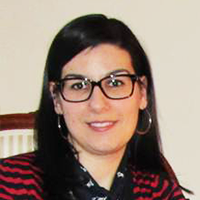Past Coverage of ACR 2014Past Coverage of ACR 2014 Return To RheumReports Home

Remission Induction in ANCA-Associated Vasculitis Without Corticosteroids – A New Frontier?
November 18 2014 4:06 AM ET — via RheumReports
The current standard of care for induction of remission in ANCA-associated vasculitis (AAV) involves the combination of high-dose corticosteroids and cyclophosphamide or rituximab. Unfortunately, corticosteroids are associated with numerous adverse events, are poorly tolerated by many patients, and they contribute to an increased risk of infection, which is a leading cause of death in patients with AAV. Until now, no studies have investigated the efficacy of remission induction therapy in the absence of high-dose corticosteroids.
CCX168 is an inhibitor of the receptor for C5aR, a protein in the complement cascade that is involved in the pathogenesis of AAV. In today’s Vasculitis II concurrent abstract session, Dr. David Jayne (abstract #1863) presented results from the CLEAR phase 2 trial. The design of this study was very interesting because the intervention group, CCX168 + cyclophosphamide, did not include any corticosteroid. The control arms were cyclophosphamide + high-dose corticosteroid (60 mg) and cyclophosphamide + low-dose corticosteroid (20 mg).
This was a small exploratory study with only 25 patients enrolled and 12 weeks of follow-up. However, it appears that CCX168 + cyclophosphamide is at least as effective (if not more effective) than standard treatment and there were no serious adverse events.
A larger study with longer follow-up is needed, but for now this study shines hope on the possibility of an alternative drug to corticosteroids, which could be a real breakthrough in the management of AAV.
Share This Report
About the Author

Lillian Barra is an Assistant Professor at Western University. Her research interests include autoimmune vascular disease and the role of autoantibodies in rheumatoid arthritis.
View Full Bio




